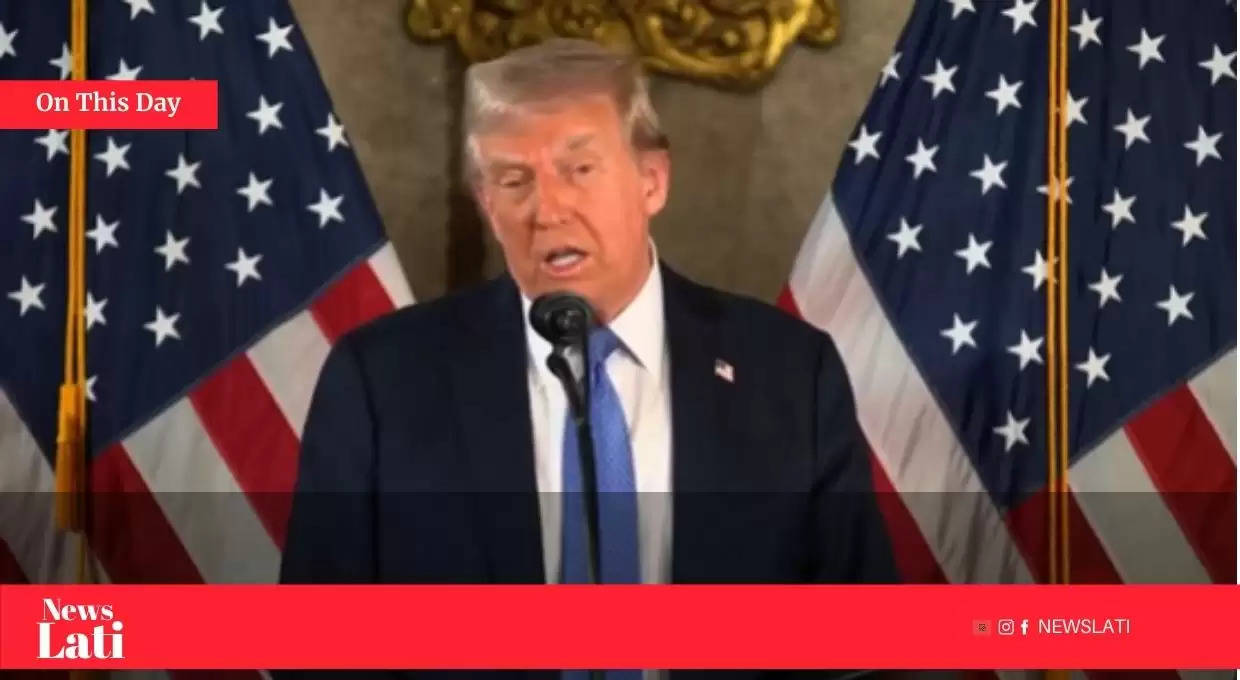President Trump Announces Sweeping Regulatory Reforms to Boost U.S. Prosperity

-
President Trump pledges to implement bold economic reforms starting on his first day back in office.
-
Aims to slash regulations believed to stifle job creation and economic growth.
-
The strategy includes removing ten existing regulations for every new one introduced.
In a recent statement, President-elect Donald Trump has outlined his immediate action plan for economic revitalization, promising to kick-start "a rapid series of bold reforms to restore our nation to full prosperity" from the very first day of his administration. Trump's focus on regulatory reform is central to his economic strategy, aiming to dismantle what he describes as "massive job-killing regulations."
Trump's announcement was made clear during a speech where he emphasized, "Preparations are underway to slash massive job killing regulations, eliminating 10 old regulations for every new one." This policy echoes his previous administration's approach but with an even more aggressive stance on deregulation. The intention is to streamline business operations, reduce costs for companies, and encourage investment and job creation within the U.S.
PRESIDENT TRUMP: "Starting on day one, we will implement a rapid series of bold reforms to restore our nation to full prosperity... Preparations are underway to slash massive job killing regulations, eliminating 10 old regulations for every new one." pic.twitter.com/Qn9YJfh14G
— Trump War Room (@TrumpWarRoom) December 16, 2024
This policy, if enacted, would represent one of the most significant regulatory overhauls in recent U.S. history. During his first term, Trump's administration had already moved to cut regulations significantly, with an executive order in 2017 mandating two old regulations be removed for every new one introduced. However, this new promise to eliminate ten regulations for every new one could accelerate the pace and scope of deregulation dramatically.
The implications of such sweeping regulatory changes are wide-ranging. Industries from energy to finance could see reduced oversight, potentially leading to increased activity in sectors like oil and gas, where regulations on environmental impact and emissions have been contentious. Critics argue that such deregulation could lead to environmental degradation and increased financial risk, while supporters believe it will unshackle businesses from what they view as unnecessary bureaucratic burdens, thus fostering economic growth.
Furthermore, this approach is expected to be a key component of Trump's broader economic policy, which includes plans for tax cuts and incentives for domestic manufacturing. The focus on reducing regulations is seen as part of a strategy to make the U.S. a more competitive place for business, both domestically and on the global stage.
Trump's regulatory agenda has been met with both anticipation and concern. Business leaders have largely welcomed the news, anticipating less red tape and more freedom to innovate and grow. However, environmentalists, consumer protection advocates, and some lawmakers are wary of the potential rollback of regulations that safeguard public health, safety, and the environment.
As preparations for these regulatory reforms are underway, the specifics of which regulations will be targeted and how this will impact various sectors remain to be seen, setting the stage for a contentious but pivotal aspect of Trump's second term agenda.
